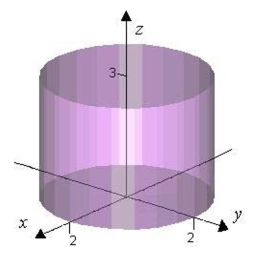Multiple Choice
Verify the Divergence Theorem by evaluating as a surface integral and as a triple integral.
A)
B)
C)
D)
E)
Correct Answer:

Verified
Correct Answer:
Verified
Related Questions
Q57: Use a computer algebra system and
Q58: Find the maximum value of
Q59: <span class="ql-formula" data-value="\text { Use Stokes's Theorem
Q60: The motion of a liquid in
Q61: Find the area of the surface
Q63: <span class="ql-formula" data-value="\text { Let } \mathbf
Q64: Use Stokes's Theorem to evaluate
Q65: Find the divergence of the vector
Q66: Find an equation of the tangent
Q67: Find the value of the line